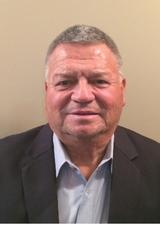Register for an upcoming session
About the Indigenous Relations Training Program
Since 2009, the Indigenous Relations Training Program (IRTP) has been providing professional (and often personal) development to students, professionals and members of the community. It’s a unique program that engages Indigenous program facilitators and Elders to provide a truly immersive learning experience.
There are four sessions throughout the year, held in November, February, May and August. We welcome all individuals seeking to understand the issues facing Canada's Indigenous population today and how to effectively build relationships with Indigenous communities.
Participants who complete all eight modules of the Indigenous Relations Training Program will receive a formal certificate, verifying that the participant has completed 24 hours of non-credit Professional Development.
Contact Information
Onyx Shelton
Cultural Programming & Events Coordinator
Writing Symbols Lodge
403.220.2271
E: irltp@ucalgary.ca
Learn how to build enriching and impactful relationships with Indigenous communities
Indigenous people are one of the fastest-growing populations in Canada. In addition to increased economic activity, growth and expansion within Indigenous communities, there are also growing business development opportunities for Indigenous individuals across Canada.
Understanding Indigenous Ways of Knowing, Doing, Connecting and Being, the historical context of Indigenous people in Canada, and how to build fruitful relationships with Indigenous communities is a fundamental step in the journey to truth and reconciliation. In addition, this knowledge and skillset are extremely valuable for job seekers and professionals in all disciplines.
Program cost
|
UCalgary Students* |
$265.00 |
|
Non-UCalgary Students* |
$395.00 |
|
UCalgary Staff |
$395.00 |
|
UCalgary Alumni |
$525.00 |
|
Registered Charity |
$525.00 |
|
Professionals and Governmental |
$1,050.00 |
* Must provide proof of student status
Payment can be made by VISA/Mastercard/American Express. Registration is processed on a first-come, first-served basis. Registration is open until the session is full, or two weeks before the program start date.

The Métis Nation, Tsuuti'na Nation, Wesley First Nation and Siksika Nation flags.
What you'll learn
The following interactive learning modules are three hours each and cover the following topics:
Learn how to describe knowledge production systems in Indigenous societies (i.e., protocols, values customs, language, relationships) and their interrelatedness between human beings and the natural world.
Gain an understanding of the origins of Indigenous people in Canada and recognize the impact of social and political events on Indigenous-non-Indigenous relations in Canadian society and Indigenous ways of life.
Understand who the Métis are, as well as the origins of the fur trade with Métis communities in the Red River Settlement and its importance to Canadian history.
Explore current issues, challenges, and opportunities affecting Métis participation in Canada's education system, employment sector, and political and economic landscape.
Learn about the unique geography, culture and history of the Inuit people in Canada, the processes of change that have shaped the region’s development, and the effects of those processes in historical and contemporary contexts.
Learn about and understand contemporary Inuit realities, for Inuit in the remote northern communities as well as urban Inuit.
Discuss various corporate approaches to Indigenous communities, including the "Duty to Consult and Accommodate", and the concept of “meaningful consultation” with communities in the resource development context and beyond.
In the final module, you'll now be able to understand the implications of the "demographic revolution" that has been and is currently taking place in Indigenous communities.
You'll also be able to discuss the direct and indirect impacts of federal and provincial legislation on Indigenous people.
Meet the instructors

Noella Wells/Ootaikimmiakii, BEd, MEd
Noella Wells is the former Iniikokaan (Painted Buffalo Lodge) Centre Director of Bow Valley College, and previously worked in First Nations schools, adult education and facilitated research projects. Noella is guided by her lifelong educational philosophy of Mokakit Iiyiikaikimaat (Strive for Wisdom and to Try Hard) in supporting Indigenous learners to succeed with the inclusion of Indigenous Elders and Ways of Knowing. She believes that all Métis, Inuit, First Nations, Status and Non-Status Indians people should be able to connect to their Indigenous identity while walking in two worlds, take their place in the workforce and be role models/mentors to the younger generations.
Noella hails from a large family, whose lineage includes: Mushkegowuk Cree, Nuu-chah-nulth, Kwakwaka'wakw, Scottish, Newfie, Hungarian, Jewish, French Canadian, Kainai and Piikani. She encourages her grandchildren to pursue post-secondary education alongside her husband, Chuck, who is also Mohawk.

Gerald Ratt/Ai’ssoo, BA, MA
Gerald is a child of a survivor of Indian Residential Schools, Two-Spirit, Woodland Cree, and is a member of the Lac La Ronge First Nation in Treaty 6 Territory.
Gerald currently works as a Specialist, Indigenous Initiatives with the Office of Indigenous Engagement, and has spent 17 years working in the areas of justice, child and youth care, youth leadership, student services, and education. Gerald is dedicated to working towards reconciliation in education for students, staff, and faculty through meaningful relationships, cultural humility, and achieving cultural safety.
He has lived and worked in Mexico, Ukraine and Peru. As a lifelong learner, he continues to open himself up to new experiences, knowledge, and challenges for self-improvement.

Tapisa Kilabuk
Tapisa is an Inuk woman from the Qikiqtaaluk region of Nunavut. Tapisa’s Inuit identity is honoured through her anaana (mother) Jeannie, her anaanatsiaq (grandmother) Maata, and her great grandmother and namesake Pitseolala. Since leaving her home community of Iqaluit in 1997, she lived in Nova Scotia, the birthplace of her father, a settler descendant from Ireland and Eastern Europe. Mohkinstsis, Calgary, the Traditional Territory of Treaty 7 has been her home since 2008.
Tapisa loves working along with the Indigenous community to promote healing and advocacy. Presently, she is in her second year of studies at UCalgary, majoring in International Indigenous Studies. In her role as a Research Assistant, she is a part of a team of researchers conducting research under the Nunavut Research Institute’s North by North Research Program. A few of her accomplishments include learning Inuktitut, revitalizing her right to traditional Inuit women tattoos and practicing traditional parenting with her husband and three children.

Art Cunningham
Art is a retired Indigenous Relations Practitioner with over 35 years of experience of building positive relationships with over 150 Indigenous Communities in Canada and 40 Tribal Communities in the US. He has led the initial contact with communities, the development policy and engagement activity, and implemented the agreements and commitments made.
A proud Métis and family man, Art is the father of four and grandfather of seven and a great-grandfather of two. He still finds time to lend his experience and guidance as an advisor, board member of non-profit organizations including, Circle for Aboriginal Relations, Calgary Friendship Center, Calgary and Area Children Services, Metis Xing Development Board, and a former Board Member of the United Way of Calgary, Calgary Children and Family Services Authority, and Metis Calgary Family Services.
In 1997, Art received the prestigious Chief David Crowchild Memorial Award, which is bestowed upon persons who create bridges of understanding between Aboriginal and Non-Aboriginal people. He has also been recognized by the International Rotary Foundation when they awarded him the Paul Harris Fellowship Award for contributions to his community. In 2005, Art received the Alberta Centennial Medal for outstanding service to the people and province of Alberta. In 2006, the Métis Nation of Alberta Region 3 formally recognized Art for his success in the corporate world.

Anne Harding, MA, CP3
Anne Harding is the owner of Forum Community Relations, a Calgary-based consulting company dedicated to catalyzing better communities through Indigenous relations and community engagement. In her 18+ years of experience as a community and Indigenous engagement professional, she has engaged with over 85 Indigenous communities and organizations across Canada on economic development, community engagement, reconciliation, education, training, and resource consultation initiatives.
Anne’s work and volunteer experiences have resulted in a distinctive ability to create and navigate ethical spaces between Indigenous and Western Ways of Knowing. Anne’s commitment to authentic Indigenous inclusion is valued by organizations and governments of all sizes and exemplified in her diverse Indigenous community connections. Anne holds a Master of Arts in Corporate-Aboriginal Relations and a CP3 (Certified Public Participation Professional) designation through IAP2 Canada, and volunteers on multiple boards including as Vice-Chair of the Indigenous Gathering Place Society of Calgary and the Calgary Chamber of Commerce where she co-chairs the Equity, Diversity & Inclusion Sub-Committee.
Funding support
For students
Check out the Student Activities Fund or the Students' Union Funding and Awards page.
For professionals
Organizations may qualify for up to two-thirds of professional development funding for staff. This can be done through the Canada-Alberta Job Grant (CAJG), a collaborative grant program offered by the Alberta and Federal Governments. You must apply for the grant before registering for the course. Please check the grant website for full details.

